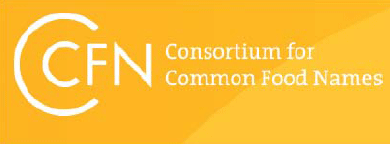
The threat to food and beverage producers who use common names for their products has gotten more widespread in the past three years, despite concerted efforts to push back on the European Union's (EU) various negotiations and policies that improperly broaden the scope of geographical indications (GI). Shawna Morris, senior director of the international Consortium for Common Food Names (CCFN) shared this warning yesterday with Washington, D.C., trade and government executives at a meeting of the Global Business Dialogue.
Morris noted that since CCFN was founded three years ago, it has taken action in 20 countries to protect common food names from efforts by the EU that threaten to negatively impact the use of such generic names as "parmesan", "feta" and "bologna"; and that the threat continues to grow through such avenues as EU trade negotiations and the proposed expansion of the World Intellectual Property Organization (WIPO) Lisbon Agreement. Morris also noted that because of the vague nature of some of the new regulations, sometimes other nations pick up where the EU left off and expand even further the damage to producers' rights.
"Fundamentally, trade agreements are supposed to tear down barriers to trade and commerce - not erect new ones," she said. "What we've seen instead is the EU wielding the leverage of its free trade agreements or GI list swaps with countries in order to push the interests of many to the side, and give advantages to select EU producers. This stands to harm not only U.S. exporters but also those in many developing countries around the world that could see more limited markets for their products or more restricted ranges of suppliers for what they want to buy."
Morris said the problem could become much worse if GI proponents are allowed to expand an international register for their terms within WIPO, known as the Lisbon Agreement, without allowing for the full involvement of the U.S. and other countries that have a stake in the debate.
She also stressed that CCFN is not opposed to the proper use of GIs. "Our goal is to promote approaches that protect both legitimate GIs and generic food names. But we very much oppose any attempt to monopolize common names that have already become part of the public domain."
Morris cited restrictions within the new Canadian-EU FTA as particularly egregious cases of harmful GI outcomes. And as an example of problematic language in EU trade deals, Morris noted that last week Costa Rican authorities upheld a decision to limit the use of "provolone" to only Italian-made cheese as a result of GI commitments in its FTA with the EU. This despite the fact that there is significant local and global production of provolone, there is an international Codex standard for the cheese, and within the EU the term is not even granted to Italy for exclusive usage.
Morris stressed that the breadth of the EU's efforts to confiscate common names is relatively new. "When the U.S. dairy industry insists that any Trans-Atlantic Trade and Investment Partnership (TTIP) deal on GIs must restore U.S. access to the EU market for common name products such as parmesan and feta, that's not looking to upend ancient history - it's simply looking to course-correct the past decade's bad decisions."
Morris shared the podium with intellectual property staff from the Office of the U.S. Trade Representative, agriculture staff from the embassy of the European Commission, and staff from the office of Congressman Reid Ribble (R-WI).
 The Consortium for Common Food Names (CCFN) is an independent, international non-profit alliance whose goal is to work with leaders in agriculture, trade and intellectual property rights to foster the adoption of high standards and model geographical indication guidelines throughout the world. Those interested in joining can find information at www.CommonFoodNames.com.
The Consortium for Common Food Names (CCFN) is an independent, international non-profit alliance whose goal is to work with leaders in agriculture, trade and intellectual property rights to foster the adoption of high standards and model geographical indication guidelines throughout the world. Those interested in joining can find information at www.CommonFoodNames.com. 3.19.2015